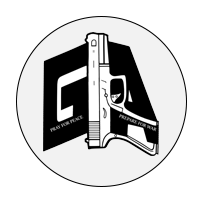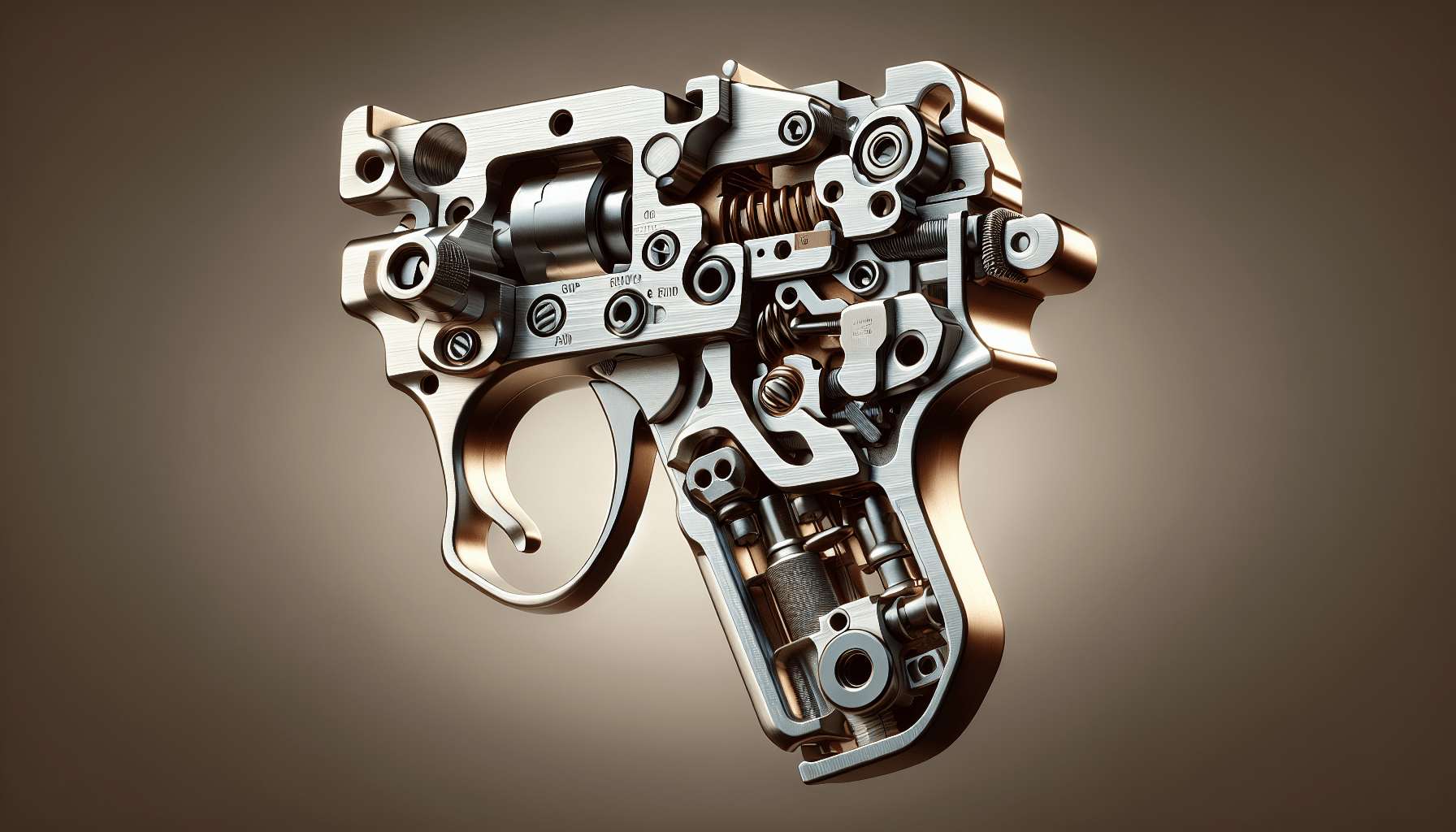Deciding on the perfect trigger upgrade for your firearm can feel a bit like picking the right wine pairings—important, yet potentially overwhelming. To simplify your journey, “How To Choose The Right Trigger Upgrade” gently guides you through the nuances, ensuring your final choice is as precise as your aim. At Green Line Arms in Pensacola, Florida, you’ll find a treasure trove of expert advice and high-quality products to support your every need. So, when you’re ready to enhance your shooting experience, don’t just wing it—visit us for the best firearms accessories and first responder medical tips, all while preparing responsibly for whatever comes your way.
Have you ever found yourself pondering how to choose the right trigger upgrade for your firearm? You’re not alone. Upgrading a trigger is not just about enhancing the aesthetics of your firearm; it’s about performance, safety, and that sweet, sweet satisfaction of knowing you made the right choice. So, let me walk you through the labyrinth of options and considerations.
Visiting us at Green Line Arms, tucked away at 1350 South Blue Angel Pkwy, Pensacola, Florida, or dropping in virtually at greenlinearms.com, you get more than just products—you get a community dedicated to responsible gun ownership and a treasure trove of expert advice.

Understanding Triggers: A Quick Primer
What Is a Trigger?
Let’s start with the basics. A trigger is a lever that initiates the firing sequence of a firearm. It may seem simple, but it’s integral to the entire shooting mechanism. Whether you’re a novice or a seasoned veteran, understanding this elementary but critical component can make all the difference.
Why Upgrade Your Trigger?
A factory-installed trigger works fine, but an upgrade often offers better performance, reliability, and customization for specific needs. Maybe you want a smoother pull for target shooting or an extra-crisp break that would be the envy of your gun club buddies. Here are some general reasons to upgrade:
- Enhanced accuracy
- Improved feel and responsiveness
- Customizable to your preferences
- Better safety features
Types of Triggers
Single-Stage vs. Two-Stage Triggers
You’ll run into two primary types of triggers—Single-Stage and Two-Stage. Think of this as choosing between a one-step and a two-step dance process.
- Single-Stage: These have a consistent pull weight right until the break. There’s only one continuous motion.
- Two-Stage: These have a “take-up” stage before hitting the wall and then a crisp break. This allows for a more controlled pull, often preferred by precision shooters.
| Trigger Type | Pull Weight | Preferred By | Key Advantage |
|---|---|---|---|
| Single-Stage | Consistent | Tactical shooters, beginners | Simplicity and speed |
| Two-Stage | Variable (Take-up/Break) | Precision shooters | Fine-tuned control |
Customizable Triggers
Customization is a godsend for those who want something tailored. Aftermarket triggers can be tweaked to fit different preferences for pull weight, length of pull, and reset.
- Adjustable Pull Weight: This lets you modify the effort needed to press the trigger.
- Overtravel Adjustment: Minimizes the extra movement after the shot breaks, improving your follow-up shots.
- Reset Adjustment: This affects how far you release the trigger before it resets for the next shot.
Material and Build Quality
Steel vs. Aluminum vs. Polymer
Ah, the eternal debate of materials. What your trigger is made of is just as important as how it’s designed.
- Steel: Usually the most durable and best for those who need long-lasting performance.
- Aluminum: Lighter than steel but often equally strong, making it a favorite among competition shooters.
- Polymer: Often found in budget options, it’s less durable but lighter and cheaper.
Sealed vs. Open Design
Think of this as the difference between a convertible and a sedan. A sealed design keeps out debris and moisture, ideal for tough conditions. Open designs, while slightly more exposed, often offer easier maintenance and can be lighter.
Safety First
Safety Features to Look For
When it comes to firearms, safety is paramount. Modern triggers often include advanced mechanisms to prevent unintentional discharges, like trigger safeties and drop safeties.
- Trigger Safety: A small lever within the trigger that has to be fully depressed for the trigger to work.
- Drop Safety: Prevents the gun from firing if it’s dropped, a feature often built into the internal mechanisms.
Match Your Trigger with Your Firearm
Not all triggers are compatible with every firearm. It’s crucial to ensure the upgrade fits your specific model. For those scratching their heads, Green Line Arms offers expert advice to guide you through the process.

The Installation Process
DIY vs. Professional Installation
You might be thinking, “I could probably do this myself, right?” Well, perhaps. But unless you’re experienced, professional installation ensures everything operates perfectly. Most importantly, it upholds safety standards. At Green Line Arms, we can not only provide the trigger but also get it installed hassle-free.
Tools You Might Need
Should you brave the DIY route, here’s a basic list of tools you might need:
- Gunsmithing Screwdrivers
- Punch Set
- Hammer
- Allen Wrenches
- Firearm User Manual (don’t skip this one, trust us)
Step-by-Step Guide
- Ensure Safety: Triple-check that your firearm is unloaded.
- Disassemble: Remove the necessary parts to access the trigger.
- Remove Old Trigger: Carefully take out the factory trigger.
- Install New Trigger: Follow the instructions from the manufacturer. Adjust as necessary.
- Reassemble: Put everything back together.
- Test: Dry fire in a safe environment to ensure the trigger works as expected.
How To Test Your New Trigger
Trigger Pull Gauge
A trigger pull gauge will help you measure the pull weight and make sure it’s consistent with your preferences. These can be found in both mechanical and digital varieties.
Dry Firing
Dry firing allows you to test the new trigger’s feel and functionality without using live ammo. It’s a great way to ensure everything is in working order before you head to the range.
Live Fire Test
Finally, the moment of truth—head to a range and put your new trigger to the test. Pay attention to how it feels with live rounds, and make any necessary adjustments.
Common Mistakes to Avoid
Over-Adjusting
One common mistake is getting too excited with the adjustments. A too-light trigger pull can be dangerous, while excessive overtravel adjustments can lead to functionality issues.
Ignoring Compatibility
Not all triggers fit all firearms. Double-checking compatibility can save you a world of trouble down the line.
Neglecting Safety Features
The thrill of a new trigger can sometimes overshadow the importance of safety features. Never compromise on safety—ever.
Recommended Triggers at Green Line Arms
Timney Triggers
One of the industry leaders, Timney Triggers offers a variety of options for multiple firearm models, known for their consistency and smooth pull.
Geissele Automatics
Perfect for AR platforms, Geissele triggers are renowned for their precision engineering and reliability.
Apex Tactical
Ideal for handguns, Apex Tactical triggers offer both performance and safety, with easy installations to boot.
Conclusion
Choosing the right trigger upgrade is akin to choosing the right life partner—it’s all about compatibility, understanding your needs, and, of course, safety. The journey might be complex, but the rewards are worth it. And hey, whether you’re lost in the myriad of choices or just need expert advice, Green Line Arms in Pensacola is your go-to place.
So what are you waiting for? Dive in, explore, and upgrade your trigger. You won’t regret it.
Remember, at Green Line Arms, we pray for peace but prepare for war. Drop by and let us help you make the best choices for your firearm needs.
For detailed and tailored advice, don’t hesitate to contact us at 850-285-0468 or visit greenlinearms.com. Happy shooting, and stay safe!




